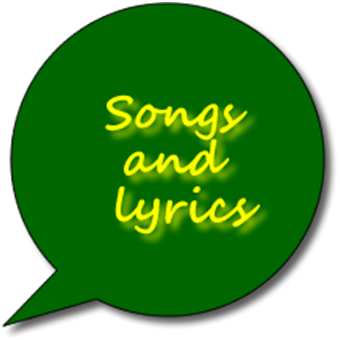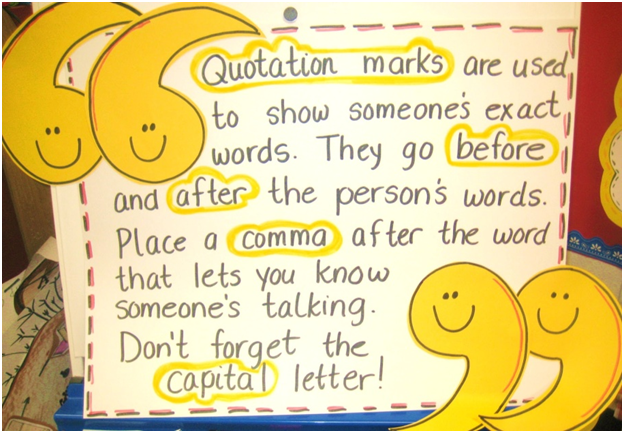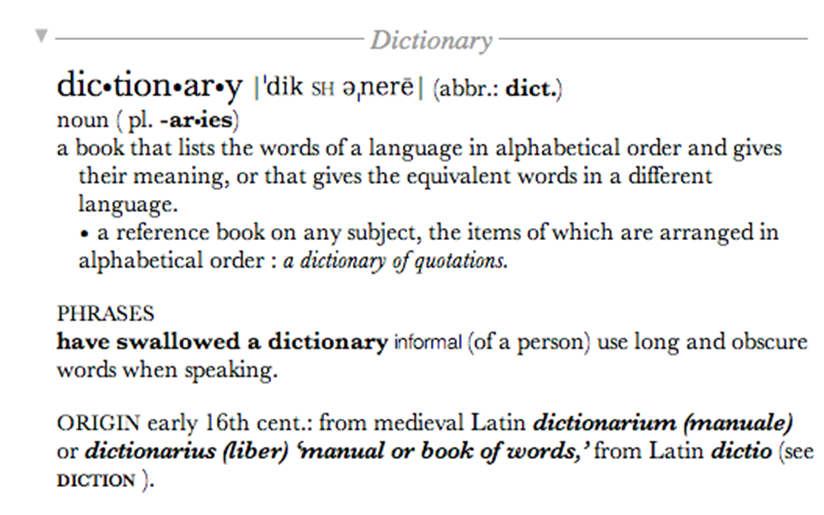Learning English through Music - Go the Lyrical Way!
How to improve spoken English?
This is one of the most common questions that we face on a day-to-day basis. As an English speaking course provider, we have researched and identified newer ways that can help students to improve their communication skills. One such experiential way is to go lyrical.
Often, students get bored learning grammar and other nuances of English. In such a scenario, a little dose of fun is always welcome. So, let us join together in a fun and entertaining journey to improve your English speaking.
Principles of learning English
Before we venture deep into how music can help you improve your vocabulary, let us first look at the principles you need to follow on this route.
1. Have fun while learning English
It is essential that you enjoy this activity, albeit, the whole point would be lost. Make sure you are passionate about the kind of music that you choose to listen to, to improve your English learning.
2. Practice 20 minutes every day
It would be much simpler to follow this principle if you preach the first rule. Learning a new skill, especially a new language, takes a lot of effort and time. Although learning English may not eat up a lot of your time, but you may have to commit a small portion of it every day. Unless you practice each day without fail, you would not reap significant results.
3. Have your reasons in place
It is important that you have your reasons in place for learning English. It is not something that you are doing for the society, at large. So, come up with a strong motivation that will keep you on track to learning English.
Now, just turn up the volumes and put on your headphones, the most enjoyable English learning class is about to begin.
The best way to learn English - the no stress way
Set a goal. The goal should be to have an enjoyable time while you improve your vocabulary. Get used to hearing English. It is a known fact that people who enjoy English music have good knowledge of the language as well. This is because you are exposed to a humongous library of new words. The goal is to know their meaning and their usage.
In addition, while you hear music, you can also understand the feelings. This is the nature of music; it allows you to connect the feelings, words, meanings and stories, all at the same time.
Let's look at the lyrics of a popular song:
Artist: Eurythmics
How many sorrows
Do you try to hide
In a world of illusion
That's covering your mind?
If you listen to this song and pay attention to the lyrics, you would learn a lot of new words. This song is simple, the pronunciation is clear and the words are easy to understand.
If you come across a word like illusion, look up for its meaning online. Wikipedia definition, "An illusion is a distortion of the senses, revealing how the brain normally organizes and interprets sensory stimulation."
Now, relate it with the lyrics of the song, the concept would be clearer. Isn't it easy to learn new words and improve your English vocabulary this way? Learn English for free by listening to your favorite songs. Get started now!
About eAgeTutor:
eAgeTutor.com provides English courses online for people who want to improve spoken English. Our expert tutors from around the globe undertake the online spoken English classes. A mix of interactive and fun-based programs is developed for students to help them improve their English language.
For further information on our online spoken English courses, please visit www.eagetutor.com.
- By Monika Agarwal
Related topics:
How to learn English through listening?
Golden Rules for Improving Spoken English
How to use Punctuation Correctly? Part - II
In our first part we learned about the use of five punctuations, namely period, question mark, exclamation mark, Ellipsis, Semicolon (;) and colon (:). Let us now begin our free English learning session with other punctuations.
Hyphen vs. Dash
Don't we all get confused when it comes to the use of the hyphen and dash? A hyphen is used when you add a prefix to a word. The hyphen makes it easier to read the word. For instance, reexamine needs to be written as re-examine. As you can notice, the hyphen makes the word easy to read. It is important to refer a dictionary whenever you have doubts whether a hyphen needs to be added or not.
There are words like to restate, undo, etc. that do not require a hyphen. A hyphen means the words rely on each other. The hyphen is also used when you make compound words, like, up-to-date.
The dash is used to introduce some information to the subject not necessarily directly related to the topic under discussion. For instance, Ram - a mechanical engineer from D.E institute – presented an innovative idea in his latest presentation at the annual meeting. Now, this is clearly additional information without which the sentence would be complete, but the information definitely provides more idea on his educational background. When you are using a dash, there is a way you can ascertain whether the usage is right. Just read the line, omitting the dash part, if the sentence is still making sense then it is correct, but if it is disjointed then you may need to reframe the sentence.
Quotation marks (" ")
Whenever you are stating a direct quotation, as said by a person or taken from a piece of literature, you should use the double quotation mark.
For instance: According to a research, "60% of Indian population gets confused between the usage of double quotation and single quotation marks."
Single quotation
Also called as the apostrophe mark ('), it is used within a word to indicate possession and short form.
Ex: It's my pen over there.
There is a great lot of confusion between using an apostrophe and singular/plural noun.
It is my daughter's pen and it is her pen. We cannot say that it is her's pen.
There are a number of English learning exercises online where you can practice the use of apostrophe to improve your English language skills.
English grammar is an interesting topic to learn, but requires a lot of patience and practice. Nobody can learn it overnight. So, go step-by-step. Correct usage of punctuation is a fundamental to learning the English language. We shall continue with our free English learning lessons, in our next blog. We shall also take a lesson on the usage of commas (,). Stay tuned to our online class for English speaking.
How to Improve Communication Skills?
Do you feel shy to communicate with strangers? Do you get jitters with the thought of carrying out a conversation with your boss? Are you tongue-tied before a presentation in your office?
If your answer is YES to all these questions, then you are definitely scared of your communication skills. Many people worry about their poor communication skills to an extent that they stop communicating altogether. If you are making this grievous mistake, let me tell you it is not the right way to improve your conversation skills.
Effective communication is important in all spheres of life, both personal and professional. You cannot understand a person/subject/topic if you are unable to communicate properly. To rise and shine in the dynamic business world, good communication is a requisite. Let's look at some of the ways through which you can improve English communication.
Learn the basics
Communication means transfer of messages between a sender and a receiver through various modes, including written words, spoken words and nonverbal cues. Confidence is another essential aspect of effective communication. You should be confident that your point is worthwhile to the subject. Be aware of your opinions and stay confident in your expression. These can equip you to convey your message effectively. Start your practice of effective communication by carrying out simple conversations. Each day and every minute you can practice to better your conversational skills. Just stay on track and never give up, no matter how bleak the road ahead appears.
1. Keep your audience engaged
Communication is a two-way road and the response of your audience decides your fate. So, make an eye contact whenever you are with people. You may be listening, or speaking, it is important to maintain eye contact intact. This is the key to successful communication. Eye contact establishes the interest and at the same time motivates the speaker to go on. Hand and facial gestures are another way to support your conversation. Your gestures can speak more than your words, so pay attention. Keep your facial and hand gestures as well as your tone in sync.
2. Effective listening is vital
To improve your English communication skills it is important to develop effective listening skills first. A successful listener is the one who can decode not only the words that are being communicated but also the feelings and emotions that comes with it. Do not just pay attention to the end of the sentence, so that you can take ahead the conversation. The rule is to talk less and listen more.
3. Enjoy the power of words
When we say enjoy, we literally mean it. Words are a powerful tool and when said in the right manner, they can have the right impact. So, don't just rush with your words, speak clearly and precisely. Never mumble to get away from the conversation. If you are being asked all the time to repeat a sentence or word, then you are not communicating effectively. Make use of simple words and pay attention to your pronunciation. Speak with the right pace; if you rush with your words, people will think that you are a nervous speaker. So, be careful with your pace.
Hope the above English tutorial is helpful in improving your English communication skills.
A Guide on How to Use a Dictionary Effectively
As a student who is learning English language, it is important that you understand how to use a dictionary. The English language has approximately 1 million words, of which an average speaker would be aware of about 60,000 words. You may be familiar with many words but would not know the exact meaning of them all. A dictionary is a handy tool that helps you improve your vocabulary day in and day out. Not only does it helps you deduce a word's meaning and spelling, but also helps you to effectively improve your English language.
Let us first look at the various information that you can find about a word in a dictionary.
• Spelling of the words and its plural form
• Syllables of a word
• Whether the word is capitalized or has an abbreviation
• The pronunciation of a word
• Different meanings a word has, its synonyms (same meaning) and antonyms (opposite meaning)
• History of the word
• An example of a sentence/expression showing the right usage of the word
• Prefixes and suffixes and their meanings
• Different words that can be derived from the main word
How to use a dictionary effectively?
You can improve your English fast, if you practice the habit of referring to a dictionary. Most of us refrain to carry a pocket dictionary as we consider it a time-consuming thing. However, if you know how to use a dictionary properly, it will take you less than a minute to find a word's meaning and refer the example. Let's look at the pointers that can help save your time.
Get yourself a quality dictionary – If you don't have a dictionary, make sure you buy a quality one like the Oxford dictionary.
Get familiar with its use – The user guidelines for each dictionary vary in approach. Therefore, the best way to go about it is to read the intro section and jot down how the details are arranged. Once you know the proper alphabetical order, you are well on your way to use the dictionary real fast.
For instance, if you're searching for a word "gnome", goes to the 'G' section and check the guide words, which are located in the upper corner of every page. These guide words are an indication on how close you are to finding your word. These guide words are real speed busters and must be checked to locate your word faster. Then, look for the second word 'n' to narrow down your search.
Got the word: Now, that you have found your word, what should you pay attention to?
• Definition of the word
• Different pronunciations – pay attention to the stress mark - ' - usually placed before a syllable to help you pronounce the word correctly.
• Capitalization
• Synonyms and antonyms
• Use of preposition, 'in', 'on' etc.,
• Phrases/idioms linked to the word
• Spellings in American, British and Australian English.
Improve your English speaking fluency by reading the word aloud from the dictionary, following the pronunciation guideline.
Hope this guide helps you to make proper use of your dictionary. Upgrade your English speaking skills while you have fun using a dictionary.




